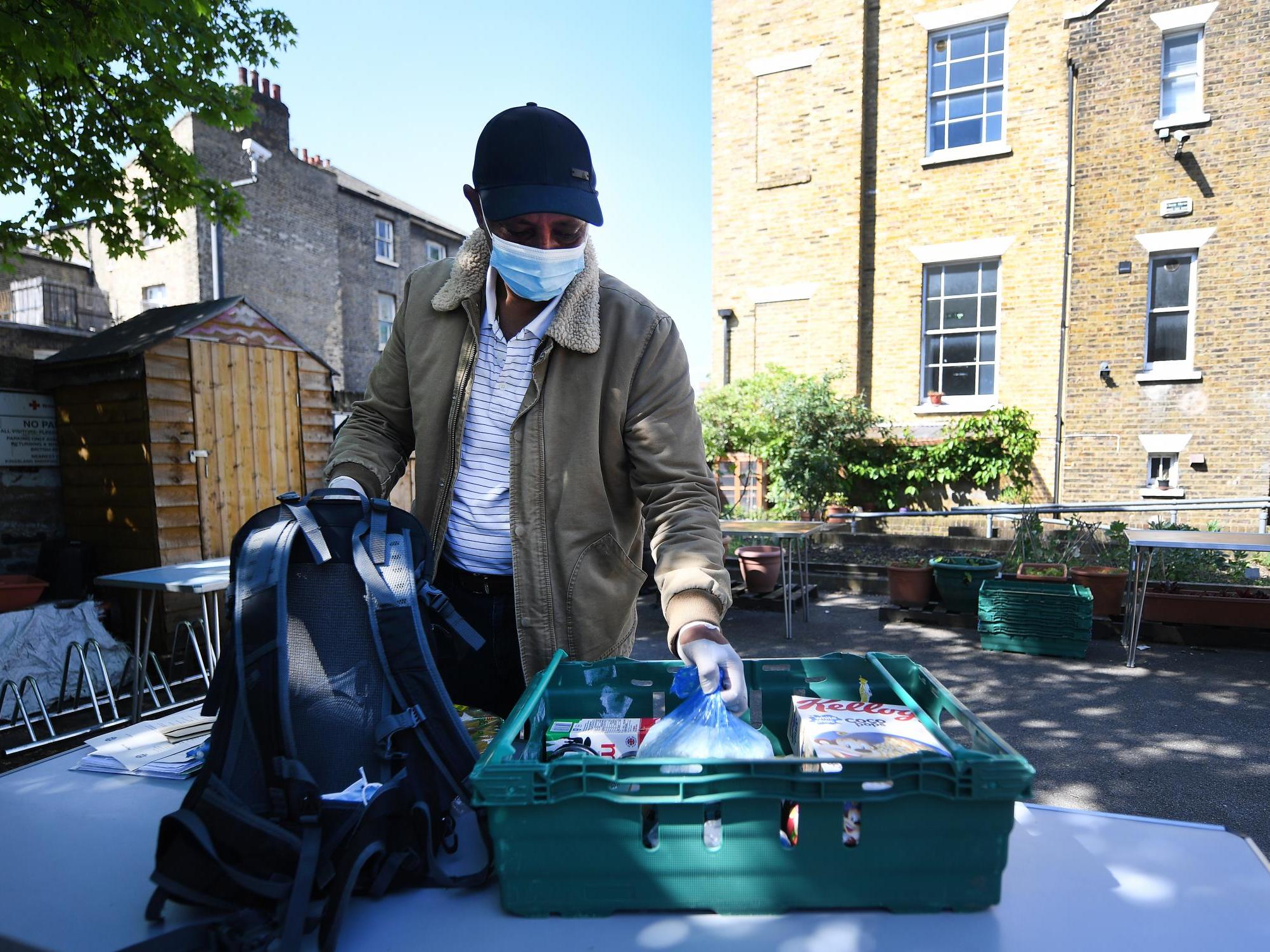This is what it feels like to be a destitute asylum seeker in a pandemic
Charities that support us have been forced to shut down or scale back, leaving numerous migrants like me very vulnerable in increasingly desperate circumstances

Just less than two months ago, life was still relatively tolerable for someone like me. I was still able to visit any one of the few day centres run by charities who provided hot meals for migrants, and they serve as our lifeline.
To be eligible to enjoy such privilege, an asylum seeker like me must show a recent “refusal letter” from the Home Office, which most of the charities that support us recognise as evidence of our destitution. Once I registered, the support would come by way of about two meals per week – often the only hot meals I would eat for an entire week. Most of us find ways to survive the rest of the time dependent on unsold sandwiches donated by food shops such as Pret a Manger or Tesco.
People like me really cannot do much to improve our lives without immigration status – we are unable to take up employment, rent an accommodation or apply for any benefits, and we certainly cannot open a UK bank account. Even more damaging to our wellbeing is the fact that we belong to a rather unfortunate category of immigrants whose lack of status actually means we have “no recourse to public funds”. This simply means we can only rely on charitable organisations for basic subsistence.
But since all such charitable organisations have been forced to shut down or scale back on certain services due to the coronavirus pandemic, it also means that numerous migrants like us are left very vulnerable in increasingly desperate circumstances.
Over the past 16 years, I’ve frequented countless day centres and met some incredible people. One man I met, a Christian from Pakistan, is also a failed asylum seeker. He has no access to public funds but was promised a phone credit top-up by a charity that has been very helpful and supportive. But for about five weeks he has been waiting for what really should be this simple promise to keep him connected. Unfortunately, this credit has not arrived in recent weeks – and probably never will. It is now impossible for him to keep in contact with his children who reside with his ex-partner.
I also came to know a Congolese woman. She is a failed asylum seeker hosted by a British family in London. As part of her stay with the host family, she would sweep, wash and generally tidy up around the house, just to show her appreciation to the host family. But just a few days before the month-old lockdown began, the two adult sons of her host family decided it was best to come back to their parents’ house to sit-out the looming crises. Suddenly the dynamics in the house changed and she feels a desperate need to move on.
Unfortunately, her English is not yet good enough to find her own support, and most of the charities helping her can only do so much under the present circumstances. Her host family has already bent over backwards to accommodate her but it is now clear that she needs to allow them their privacy. She feels utterly distraught about her helplessness in such a situation.
Sadly, stories like these demonstrate not just the vulnerability of these class of migrants, but how it can equally impact their community. Surely it cannot be right to force adult human beings to lead a life of complete dependence upon other people whom they must rely upon to provide all their basic needs, especially in a time of crisis?
As we all keep a wary eye on the daily Covid-19 news, a clear pattern has emerged: as many as 70 per cent of the fatalities among the NHS frontline staff are from the Black, Asian, and minority ethnic (Bame) community. There is also a higher proportion from the Bame migrant community who face a bleak existence as they grapple with the harsh effects of the hostile environment in the UK – particularly those who still have no access to public funds.
To further compound the suffering and misery of this minority group are other socioeconomic and health factors, such as overcrowded housing, which raise the risk of exposure to Covid-19. The Bame community already has higher numbers of people with underlying health issues such as heart disease, diabetes, high blood pressure and diagnosed mental health conditions. This means that people in the UK without immigration status are not only more susceptible to, and more likely to be exposed to, the Covid-19 virus, but are more likely to endure a more damaging legacy from the pandemic with regards to their economic, social and physical wellbeing in future.
Some human rights organisations are making the government more aware of the havoc being wreaked upon lives like mine as the full extent of the damage caused by this pandemic unfolds. There is now a call to action led by frontline charities such as the Jesuit Refugee Service, calling for a grant of leave for migrants. Similar moves have already been made by governments in countries such as Portugal and New Zealand, and the result has been brilliant in terms of the display of humanity and common sense.
Surely, there is no reason why the UK should not follow this noble example by ending a repressive policy that not only continues to cost lives but may be putting the entire society at risk? It certainly will ensure that everyone – including those like me who are so often ignored – will be carried along in the campaign to stop coronavirus and rebuild the country and its economy.
The author is a destitute asylum seeker living in London. He has lived in the UK with insecure immigration status for 16 years. He considers the UK his home and is involved in advocating for change on policies affecting those in situations like his own. He is a member of Refugees Call for Change


Join our commenting forum
Join thought-provoking conversations, follow other Independent readers and see their replies